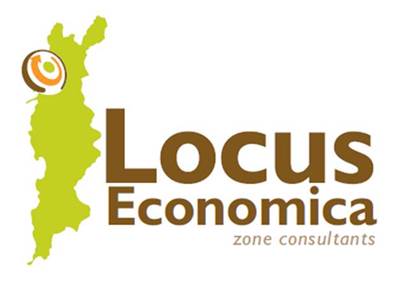Kenya
Kenya has made impressive strides in improving its business environment in recent years. The passage of new laws affecting foreign investment—such as the Investment Promotion Act (2004), the Companies Act (2015), the Public-Private Partnership Act (2013), the Foreign Investment Protection Act (2012), and the new constitution (2010)—have led to an increase of 21 places in the World Bank’s Doing Business Rankings between 2015 and 2016 alone.
Improvements to the business environment have paid off. Foreign direct investment (FDI) has steadily risen, reaching US$1.4 million in 2015. The economy has grown by an average of over 5% annually over the last seven years. Agriculture remains the backbone of Kenya’s economy, though services accounts for 50% of GDP. The industrial sector covers 19.5% of GDP, and is growing at a rate of 6.1% per year. Small-scale consumer goods are its major industrial activity, and its top export markets are Zambia, Tanzania, Uganda, and the Netherlands.
Locus has helped further these reforms by closely advising the government on its new Special Economic Zones (SEZ) Act (2015) and regulations (2016). The Act establishes a new SEZ Authority as a dedicated regulatory agency able to consolidate most government functions for businesses. Several different types of SEZs are planned, including business service parks, free port zones, free trade zones, industrial parks, information and communication technology parks, science and technology parks, agricultural zones, livestock zones, and tourist and recreation zones.
As a result of this Locus Economica work, a SEZ Act and Regulations were adopted, an SEZ Authority was created and, in as of July 2019, the Kenya Cabinet had approved the development of Konza Tech City, the Naivasha SEZ and the Dongo Kundu Freeport (in Mombasa). Dongo Kundu SEZ is being developed at a site identified by and strongly advocated for by Locus Economica in a 2011 site selection report, and it is now under construction and ultimately expected to create 3,000 direct and indirect jobs. A taskforce looking into developing an SEZ in Kisumu (a project expected to eventually create 24,000 jobs) was formed in March 2019. That same month, the Beijing Damei Group moreover announced plans to invest $2 billion in the building of a “Friendship City” SEZ outside Nairobi, projected to create 150,000 direct jobs. In February 2020, the Government gazetted power discounts for the Naivasha SEZ with a view to attracting more manufacturing firms.






One of Locus Economica's greatest values is the guidance we provide on legal and regulatory frameworks for special economic zones (SEZs). Locus has walked alongside the Kenyan government in its development of a new special economic zones law, regulations, and subsidiary instruments for the last few years. In March-April 2017...